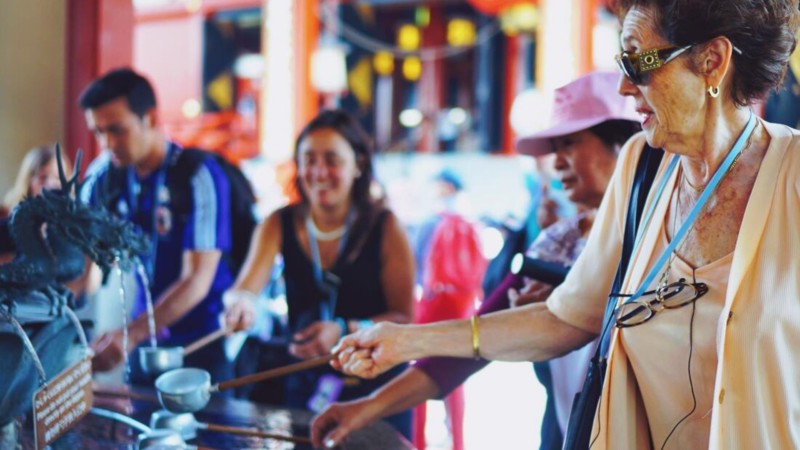It’s ok to give responsibility to your guests as sometimes, the customer is not always right…
So often we get angry with travelers behaving badly, and yet, I wonder if someone simply pointed that out to them, they would behave better.
After all, what is considered ‘acceptable’ behavior varies drastically depending on the culture, so is it perhaps unrealistic of us to expect all travelers to take the time and energy to observe and mimic the locals?
The good news is that guides are in the perfect position to educate travelers on ‘what not to do’.
However, with our customer service tendencies, we are often so afraid of insulting guests or losing that tip that we’re more likely to smile and nod rather than give responsibility to them to do better.
In this article, I’ll offer a few suggestions on how to give responsibility to your guests as needed (which your fellow locals will thank you for!).

Share this article
Four techniques to give responsibility to your guests.
1. Reframe the question.
If you don’t like the question your guests have asked, feel free to reframe it.
For example, let’s say your guest has asked you if you are married, which you might be uncomfortable answering.
You could reframe the question by saying; “In our culture, we don’t talk about personal things like that at work, but I can tell you that most people nowadays get married in their late 20s).
2. Tell them WHY something they are doing is inappropriate or harmful?
In NYC, where locals are famous for always being in a hurry, tourists are known for ‘getting in the way’.
It’s one of the main reasons why locals loathe to go to Times Square, too many tourists walking slowly and stopping in the middle of the sidewalk.
This was an easy way for me to give responsibility to my guests on a walking tour;
“Now, we’re going to be going at a slower pace than the locals on this tour, so let’s just stay to the right so that others can pass us. And if someone pushes by, remember, while you’re here on vacation, which is great, they are probably running late for work, or just trying to get home after a long day.”
Related articles:
3. Understand your audience.
The majority of people who sign up for a tour do so to learn something.
So they’re usually very open to being educated.
Of course, there are sometimes guests who are only tagging along with family or the ones that love to show off how much they know…
By getting to know your guests (talking to them during check-in and between stops), you can get an idea of who is open to being corrected, and who is not.
So that when the opportunity comes to give responsibility, you can decide whether it’ll have any impact.
4. Embrace your role as a local ambassador.
Don’t forget that YOU are the local expert in this scenario.
Guests often appreciate being given skills or cultural information that help them blend in during their visit.
For example, an Italian guide might explain to American tourists that in a local coffee shop, you often must pay first, then bring your receipt to the person at the bar.
On a tour, that is simply an interesting cultural fact.
However, it has a huge impact in preventing the guests on your tour from getting in the way of locals later during their trip by being able to correctly order their coffee.
It’s a small way to give responsibility (but if you’ve ever had to wait for your coffee because a tourist was incorrectly ordering theirs, you’ll know it makes a big difference).
For some extra reading on changing your guest’s opinions see How to Be Political on a Tour and Changing the Perspectives of Your Guests.


